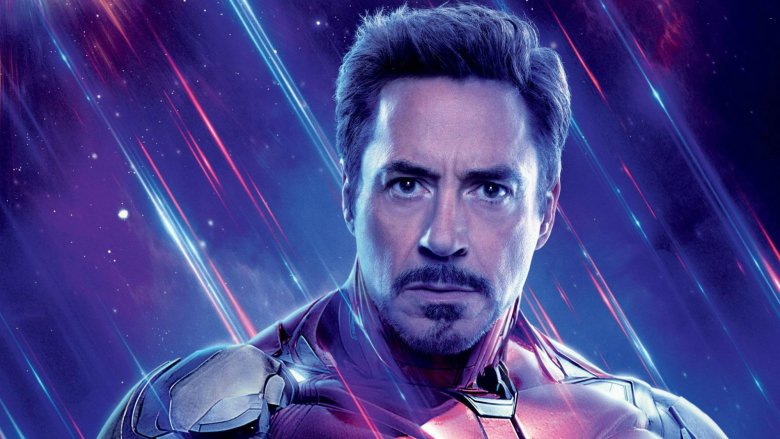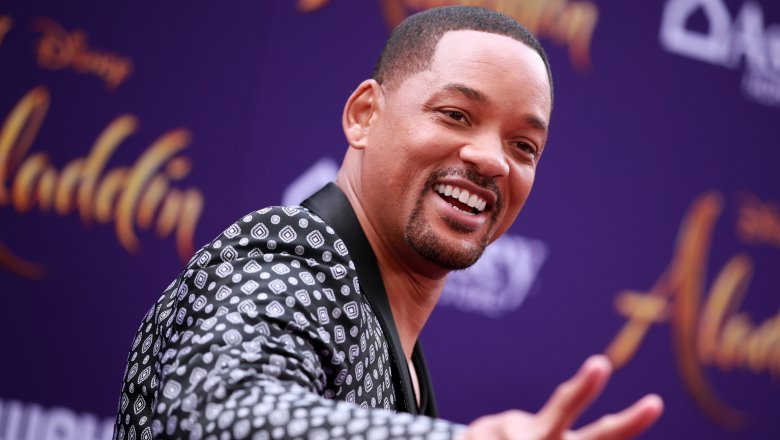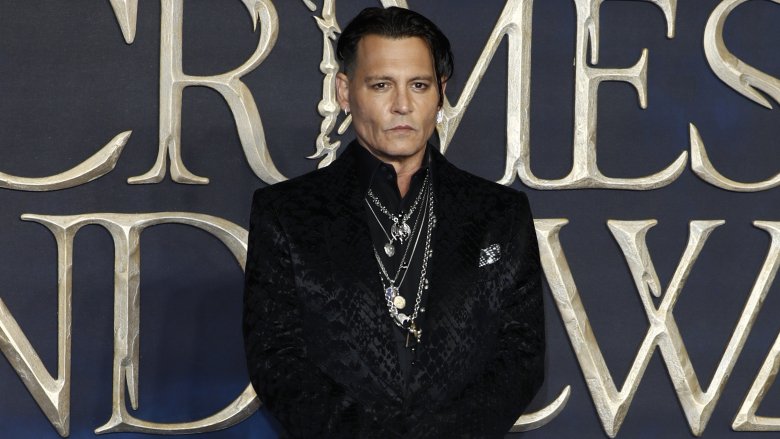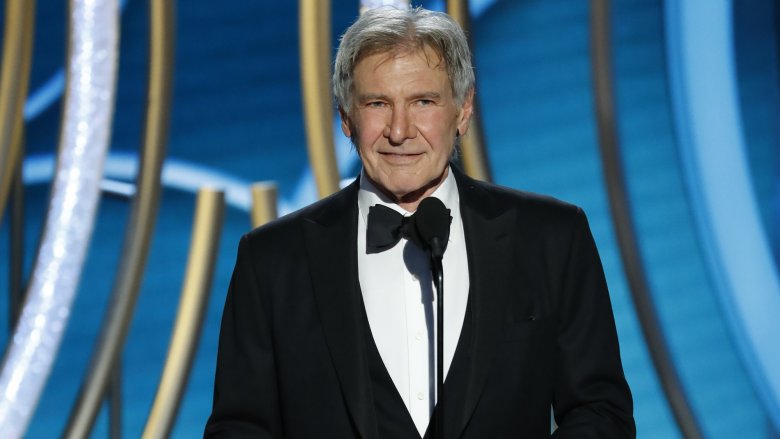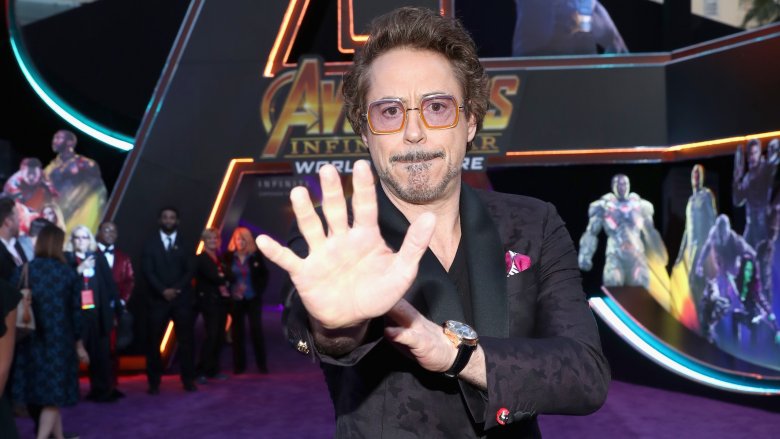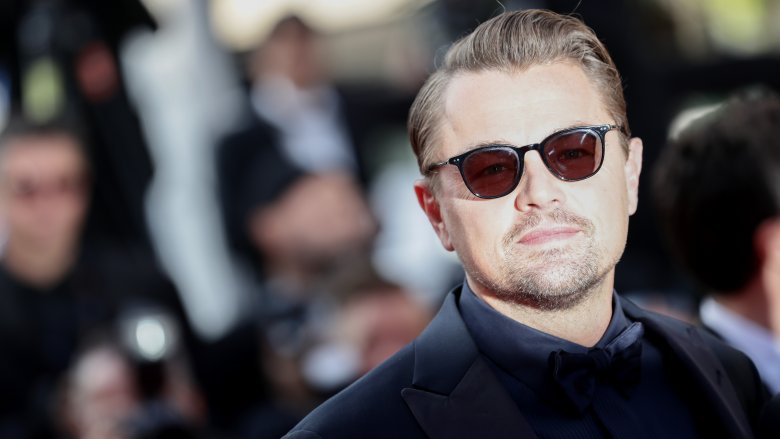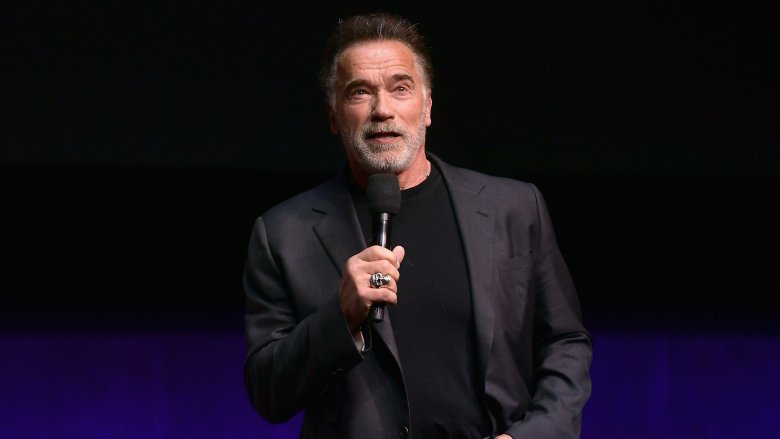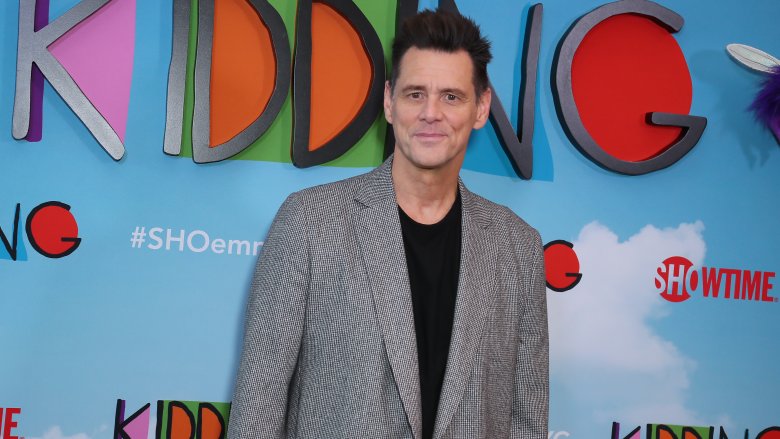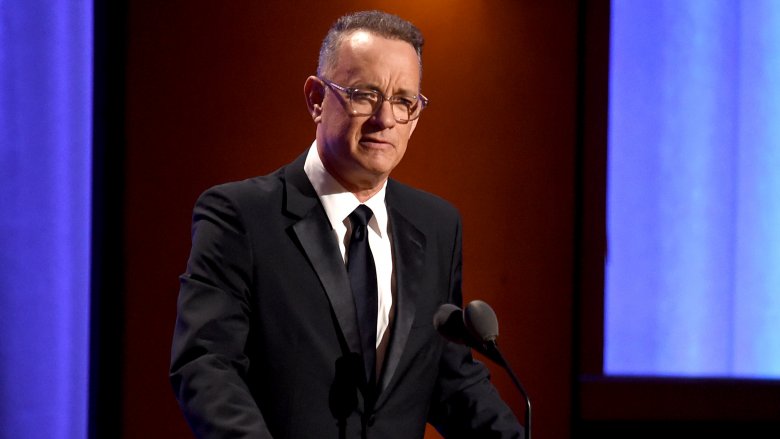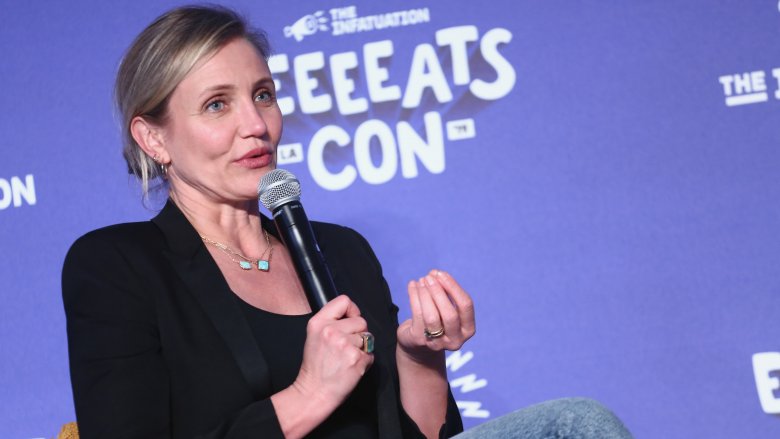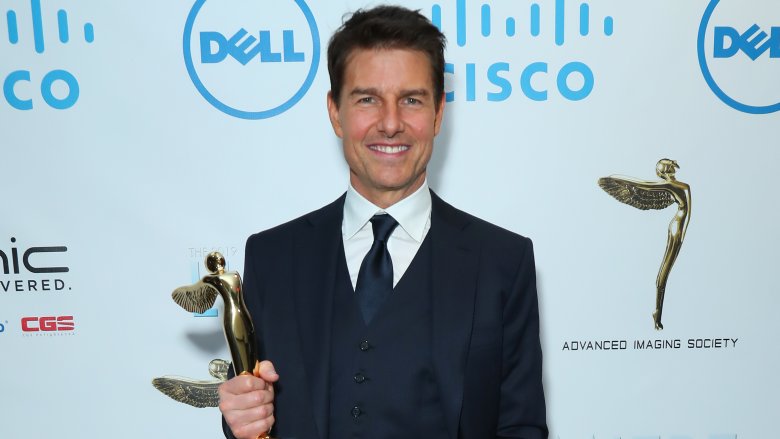The Highest Paid Actors Of All Time
In the public imagination, all movie stars are rich. While that may be broadly true in some form, there's rich and then there's rich. When it comes to maximizing paychecks for big movies, some movie stars (and their agents and attorneys, naturally) just know how to cut the right deal.
So, how do you get the biggest possible payout in Hollywood? It depends on your path. You can work your way up until your name alone is enough to command a massive salary. You can win an Oscar and then negotiate a big payout for your follow-up film. You can hitch your wagon to a franchise and keep riding that wave as long as possible. You can even do some combination of all three. Here are a dozen actors who've followed these paths, and others, to some truly massive Hollywood paydays, from post-Oscar gold mines to franchise hits that just won't quit.
Will Smith
Though he's had some stumbles in recent years, Will Smith's run as a bankable movie star who could add real power to box office returns began with films like Independence Day in the 1990s, and he's still a big enough draw for family entertainment to headline spectacles like Disney's new live-action adaptation of Aladdin.
In terms of Smith's biggest payday ever, we have to look not to a Disney remake, but to a long-awaited return to a beloved franchise. In 2012, Smith finally put the suit and sunglasses back on for Men In Black 3, completing a trilogy with a franchise that began in 1997 and hadn't seen a new entry in a decade. Smith's return to the franchise helped make the film a worldwide hit, and he was rewarded with not just payment for his services, but a cut of the film's overall gross. According to The Hollywood Reporter, Men in Black 3 brought in $624 million in box office earnings, and about $100 million of that went to Smith.
Johnny Depp
Though it might not always be the most creatively rewarding thing in the world, sometimes a winning strategy for an actor looking to make bank is to just keep riding the franchise train and try not to let your jaw drop when you realize you're being overpaid.
In 2011, after the release of the fourth Pirates of the Caribbean film, On Stranger Tides, even Johnny Depp admitted that he was being paid "ridiculous" amounts of money to appear in the films as Captain Jack Sparrow, but noted he was happy to take the paychecks for his children. So, how much money does Depp consider "ridiculous?" As of 2011, the first four Pirates outings had reportedly earned him somewhere in the range of $300 million, with $55 million of that coming from On Stranger Tides alone. That film was, at the time, said to be the most expensive movie ever made, with production costs soaring north of $400 million. Obviously, Depp's paycheck alone put a big dent in that budget. Add in the fifth Pirates film, 2017's Dead Men Tell No Tales, and Depp's cumulative Jack Sparrow payout is even higher.
And that's not even Depp's only big franchise payday. He was paid 50 million pounds to star in Tim Burton's Alice in Wonderland for Disney, which comes out to about $68 million.
Harrison Ford
Another winning strategy when it comes to earning huge amounts of money with a franchise is to steer clear of it for a significant period of time, then take a massive payday when the studio really, really needs you to come back. That was the case when Harrison Ford agreed to crack the whip again as Indiana Jones for Kingdom of the Crystal Skull.
For that film, rather than settling for a hefty upfront paycheck, Ford — who is second only to Samuel L. Jackson on the list of the highest-grossing actors ever — cut a deal that allowed himself, director Steven Spielberg, and co-writer George Lucas to split a hefty percentage of the film's earnings. Crystal Skull earned nearly $800 million worldwide, and that success was enough to put Ford on the Forbes Celebrity 100 list of 2009's highest-paid stars with $65 million.
Now that a fifth Indiana Jones film is slowly inching our way, it'll be interesting to see just how much money Ford walks away with this time.
Robert Downey Jr.
It's perhaps a little hard to remember now, but before Iron Man, Robert Downey Jr. was considered a risky bet for big movies, and particularly movies that were supposed to launch franchises. Cut to 11 years later, and Downey has spent the last decade as one of the highest-paid and bankable stars on the planet thanks to his role as Tony Stark, the godfather of the Marvel Cinematic Universe.
Downey's massive earnings — which include a tidy $15 million for just three days of shooting on Spider-Man: Homecoming — stem from a renegotiation of his deal with Marvel that allowed him to begin earning backend money from the films' massive box office returns. That agreement led to a $50 million payday for The Avengers and at least $40 million for its sequel, Avengers: Age of Ultron, and those don't even come close to his biggest Marvel paydays.
For that, we have to look at his final solo film, Iron Man 3, as well as 2018's Avengers: Infinity War. For those films, Downey took in at least $75 million each, keeping in mind that these are only reported numbers and might not reflect his full cut of the backend. We don't yet know what he earned from Avengers: Endgame, but we can expect that number to be pretty super.
Leonard DiCaprio
At the time Inception was released in 2010, Christopher Nolan was a filmmaker who could be counted on to make massive amounts of money with his Batman films. His original efforts, like Memento and The Prestige, weren't exactly on the same level of box office buzz, despite critical acclaim. That made Inception, Nolan's dream heist thriller, a somewhat risky bet at the time, particularly as sequels and reboots were gaining even more steam in the summer movie season.
Leonardo DiCaprio wanted to star in Nolan's film, though, so he doubled down on the gamble. DiCaprio cut his salary well below his $20 million-per-film fee at the time to ease the upfront costs, but in return he got a particularly rare deal when it came to claiming a piece of the film's profits. Most stars' box office cuts come after the studio has already started making its own money (that is, after recouping production and promotional costs), but that wasn't the case with DiCaprio on Inception. He and Nolan cut a deal that allowed them to both earn percentages of the film's "first dollar" earnings, meaning his cut of the gross came straight from ticket sales without going to pay off studio expenses first. That created a very lucrative payday indeed for DiCaprio, who is estimated to have earned at least $50 million from Inception.
Sandra Bullock
An Oscar is worth more than just its weight in gold. Leverage the bump you get from winning one at exactly the right time, and you're in for the biggest payday of your career. That's exactly what Sandra Bullock did after winning her Best Actress Oscar for The Blind Side. Bullock signed on for the lead role in Alfonso Cuaron's space thriller Gravity, and her post-Oscar clout was enough to earn her a $20 million upfront paycheck just to make the movie. Things didn't stop there, though.
Bullock also negotiated one of those rare first-dollar percentage deals that allowed her to take 15% of whatever the studio earned from the film. Gravity ultimately earned more than $700 million worldwide, and industry experts estimate that put Bullock's final payday somewhere in the $70 million range. To make this even more impressive, though, that's only an estimate based on what she got from her initial check and the film's box office earnings — her deal also included home video sales and other income from the film. The final figure is likely significantly higher.
Arnold Schwarzenegger
By the early 2000s, Arnold Schwarzenegger was not necessarily the box office draw that he'd been a decade earlier, but the Austrian Oak had some clear advantages that still allowed him to earn big. Chief among them was the fact that, when it comes to Terminator films, audiences still associate his face and massive frame with the franchise more than any other actor.
This meant that for Terminator 3: Rise of the Machines, producers were determined to get Schwarzenegger back as the T-850 Terminator. Schwarzenegger was fine with that, but if they wanted him they were going to have to agree to a few demands. For T3, Schwarzenegger and his representatives negotiated a $29.25 million guaranteed "pay or play" paycheck (meaning that even if the production fell through he would still get that money), which was at the time a "pay or play" record. Schwarzenegger also made sure he would be well taken care of during his time making the film, negotiating a $1.5 million package that included his accommodations, bodyguards, private jets, and limousines. He also ensured he'd be paid well if the film went over schedule at the rate of $1.6 million for every additional week he was required to shoot. And if that weren't enough, there was also a cherry on top: 20 percent of the gross earnings for the film in every market from theatrical to DVD sales.
Jim Carrey
Sometimes actors make sure they're paid well by negotiating guarantees into their contracts which mean that even a film completely falls apart, they'll still get their money. Sometimes they simply make sure their upfront fee is a big one. Then there are the stars who can afford to take a risk or two and choose to bet on the film's ultimate success rather than snatching big money at the beginning.
That's what Jim Carrey did for the 2008 romantic comedy Yes Man, in which he plays a guy who tries to reinvent himself by saying yes to everything offered to him in life. The film was not a blockbuster in the action or superhero movie sense, but Carrey felt it would do well for a comedy, and decided to take a piece of the backend earnings rather than a massive salary upfront. His bet paid off. Yes Man grossed $230 million worldwide, which was enough to earn Carrey $30 million and put him on the Forbes Celebrity 100 list in 2009.
Tom Hanks
Tom Hanks is an actor with a diverse filmography ranging from comedy romps to animated classics to dark dramas, and he also works as a writer, director, and producer. All of this, coupled with his reputation as one of the nicest guys in Hollywood and his Oscar-winning talent, means he hasn't had to worry about money for quite some time. That financial stability is also thanks, in part, to a couple of key deals Hanks cut on two of his most famous films in the 1990s.
According to Entertainment Weekly, Hanks approached Forrest Gump — which won him his second Oscar for Best Actor — with an eye toward not a hefty initial payday, but a cut of the film's box office returns. Gump went on to gross nearly $700 million worldwide, and Hanks walked away with a $60 million payday and another Academy Award. Just a few years later, he pulled the same move with Steven Spielberg's Saving Private Ryan and it paid off again, netting Hanks $30-40 million after all the box office receipts were counted.
Cameron Diaz
Many of the biggest paydays in movie history have arrived when a bankable star met an expensive and ultimately highly lucrative blockbuster, but that's not always the case. Sometimes the right star can pick a smaller vehicle, like a comedy with big box office potential, and make the right bet on themselves to walk away with a massive payout if the film hits big.
That's exactly what Cameron Diaz did with Bad Teacher. She was paid $1 million upfront just to get the movie made, which is nothing to sneeze at, but that was actually a pay cut compared to the rates Diaz commands for other films. She took that cut so she could instead get a percentage of the film's box office, which turned out to be a hefty chunk. Bad Teacher was a hit, and Diaz ended up taking home $42 million for her work on the film.
Tom Cruise
There was a time, really not that long ago, when Tom Cruise seemed like he might be done as a movie star. His infamous couch-jumping Oprah antics amid his romance with actress Katie Holmes, public scrutiny over his ties to the Church of Scientology, and a string of box office disappointments were enough to cast doubt on his future. Cruise is still a tried and true movie star, though, and he proved that by bouncing back in a big way. One of the key reasons for this is the continued box office and critical success of the Mission: Impossible franchise.
After a relatively modest box office performance from Mission: Impossible 3, Cruise and company stepped up their game with the fourth film, Ghost Protocol. Director Brad Bird helmed the film, the franchise was put back on track as a huge earner, and Ghost Protocol took in nearly $700 million worldwide. Cruise, of course, had a deal that allowed him a percentage of the earnings, and Forbes estimated that led to earnings somewhere in the neighborhood of $75 million. The Mission franchise has only gotten bigger with the two films since, so his cumulative paycheck as Ethan Hunt has to be astronomical at this point.
Keanu Reeves
These days, Keanu Reeves is an action superstar once again thanks to the critical and commercial success of the John Wick franchise, which netted him $1-2 million for the first film and $2-$2.5 million plus an ownership stake for the second, according to The Hollywood Reporter. That's good money, but as THR also reports, it's nothing compared to the kind of payday Reeves secured when he took the lead in an even bigger action franchise: The Matrix.
When he played Neo in the three Matrix films, Reeves' going fee for a starring role was in the neighborhood of $15 million per film. That's $45 million for three movies, but Reeves didn't stop there. He also got a cut of the gross earnings for the massively successful trilogy, which means his total payday was more than five times that, in the $250 million range. So, show up, look cool, and dodge bullets, and you can earn a quarter of a billion dollars if your sci-fi action trilogy does well enough at the box office.
